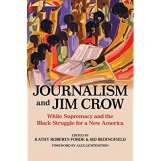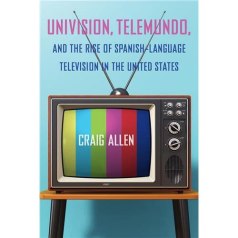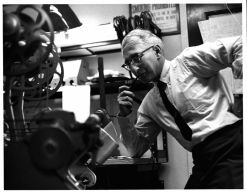
Matthew C. Ehrlich, an emeritus professor of journalism at the University of Illinois at Urbana-Champaign, has a new book, Dangerous Ideas on Campus: Sex, Conspiracy, and Academic Freedom in the Age of JFK (University of Illinois Press). The book focuses on two academic freedom cases at the University of Illinois: a biology professor fired in 1960 after he condoned premarital sex, and a classics professor not fired in 1964 after he claimed that the recently assassinated John F. Kennedy was a loathsome traitor. The book places those two cases in the context of the culture wars of the time and shows how the cases continue to resonate in today’s polarized political climate. The book also highlights the distinction between academic freedom and free speech, as well as the important role of student news media in promoting the open exchange of ideas.

Will Mari, an assistant professor at Louisiana State University, has a forthcoming book, Newsrooms and the Disruption of the Internet: A Short History of Disruptive Technologies, 1990-2010 (Routledge, February 2022). It explores how the internet impacted the journalism industry in the 1990s and 2000s and is a sequel to A Short History of Disruptive Journalism Technologies, 1960-1990 (Routledge, 2019), which explored the computerization of the newsroom during the Cold War. (Contact Will for a digital copy of the latter.)

Elisabeth Fondren, an assistant professor at St. John’s University, published “Fighting an Armed Doctrine: The Struggle to Modernize German Propaganda during World War I (1914-1918)” in Journalism & Communication Monographs. Her article chronicles the ideas and methods of early German propagandists, including their secret attempts to copy ideas from their enemies, and how World War I conspiracy theories and publicity lessons carried over to World War II and informed Nazi propaganda. Michael S. Sweeney, Ross F. Collins, and Sarah Oates wrote expert commentaries. In October, Elisabeth was invited to speak at Yale University about her research on archiving media, memory, and propaganda history.

A class lecture by Joe Campbell, a professor at American University, about the media myths of the Washington Post and Watergate was taped by C-SPAN in November and is to be shown in 2022 on the cable network’s “Lectures in History” series. C-SPAN previously has aired Joe’s lectures about the myths of yellow journalism and the Spanish-American War and of the “Cronkite Moment” of 1968. Joe, a former History Division chair, is in his 25th year at American.





